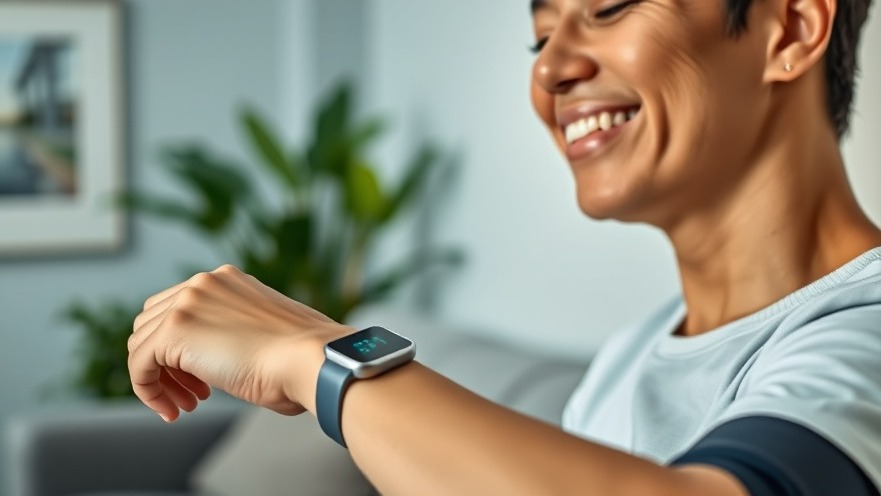
AI-Driven Wearable Blood Pressure Sensors: A New Era in Cardiovascular Monitoring
The advancements in healthcare technology are ushering in exciting innovations, particularly in the realm of monitoring chronic conditions. A recent breakthrough from the KAIST research team presents AI-driven wearable sensors that promise continuous, non-invasive monitoring of blood pressure (BP). This development aims to significantly impact individuals battling hypertension, a leading chronic disease that affects over a billion people worldwide.
Understanding Hypertension and Current Monitoring Limitations
Hypertension is not just a health issue but a diagnostic challenge that can lead to severe complications like myocardial infarction and stroke. The traditional methods of blood pressure measurement typically utilize cuff-based systems, which only provide periodic readings and fail to capture the fluctuations in blood pressure throughout the day. This lack of real-time monitoring poses a significant barrier to effective disease management. That's where the innovative wearable sensors come into play.
How Does the New Sensor Work?
The KAIST team's wearable blood pressure sensor combines high-sensitivity technology with advanced AI algorithms to continuously capture BP data accurately and effortlessly. Unlike existing wearables that struggle with precision in medical applications, this technology leverages piezoelectric materials for flexibility and accuracy. It continuously monitors users, capturing essential data to provide real-time insights into cardiovascular health. Professor Keon Jae Lee articulated this advancement as a means of overcoming historical challenges in medical-grade wearable technology, signaling a new potential for individual health management.
Technical Challenges and Innovations
Although promising, the journey toward reliable wearable blood pressure monitoring is fraught with technical hurdles. The KAIST team’s extensive literature review revealed significant challenges, including data transmission quality, signal degradation, and algorithm accuracy. Addressing these issues calls for continuous advancement in sensor technology and signal processing. In particular, the integration of machine learning algorithms enhances the accuracy of blood pressure estimations, ensuring medical-grade reliability. This could pivot healthcare toward a more personalized and data-driven approach.
Future Implications for Continuous Monitoring
The implications of these AI-driven sensors are transformative. Not only do they facilitate early detection of hypertension symptoms, but they also promote adherence to treatment regimens. The ability to monitor BP in real-time could result in more tailored treatment plans, thus improving patient compliance and overall health outcomes.
Real-World Applications and Patient Benefits
Imagine health practitioners equipped with up-to-the-minute data on their patients' blood pressure fluctuations, enabling timely interventions or adjustments in treatment. Also noteworthy is the potential integration of these sensors into everyday items such as pillows or mattresses, which offers an unobtrusive way to monitor one’s health. This convenience could encourage users to engage actively in their health management, fostering a culture of preventative healthcare.
Addressing Skepticism: Reliability and Trust in Technology
Despite the promising outlook, some skepticism remains regarding the effectiveness of such technologies in clinical settings. The accuracy and reliability of wearable devices have often come under scrutiny, a reality echoed in studies examining device fidelity. However, the KAIST team asserts that their innovations address these limitations, setting a new standard for future technologies through rigorous validation.
What Lies Ahead?
The rapid pace of technology development suggests that we can expect continuous improvements in wearable blood pressure sensors. Researchers aim to further refine accuracy and usability while ensuring that data collection is both efficient and user-friendly. Over time, combined with routine medical check-ups, these devices will potentially shift the paradigm of chronic disease management.
Call to Action: Embrace the Future of Health Monitoring
For concierge health practitioners eager to stay ahead of medical trends, embracing technologies like AI-driven wearable blood pressure sensors is imperative. These advancements could significantly enhance care quality for patients managing chronic conditions. Consider exploring the latest in wearable tech and integrating these solutions into patient care strategies—transforming how we approach cardiovascular health and beyond.
 Add Row
Add Row  Add
Add 






Write A Comment